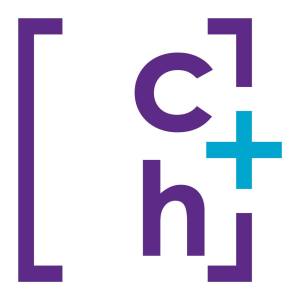Cohero Health, a startup that aims to improve care and medicine adherence for people with respiratory issues just debuted its comprehensive connected health platform for asthma patients on stage at TechCrunch Disrupt San Francisco 2015. Starting today, anyone with asthma is encouraged to sign up to become an early user.
In the U.S. alone, 26 million people suffer from asthma, according to the American Lung Association. Cohero Health’s ultimate mission is to enable seamless, automated, end-to-end patient to provider integrated respiratory care management.
Cohero Health plans to accomplish this through two products: a medication inhaler sensor with mobile software to track adherence and a mobile spirometer to measure and monitor lung function. The inhaler sensor, called HeroTracker, is basically a jacket that fits over the inhaler to track patient adherence. Meanwhile, the mobile spirometer measures lung function and tracks Forced Vital Capacity and Forced Expiratory Volume, which is the speed and volume of breath over time. In June, Cohero Health received FDA clearance for its mobile spirometer, which allows asthma patients to track their lung function at home.
 “We’re super excited about the FDA clearance,” Cohero Health CEO and Co-Founder Melissa Manice told me ahead of her presentation at Disrupt. “What’s crazy is that, we all know asthma is chronic, so the best you can do is maintain it and hope to treat it so your condition improves. What we hope to do is eradicate these hospitalizations. The main reason why there are these hospitalizations is because patients are not adherent on their control medications.”
“We’re super excited about the FDA clearance,” Cohero Health CEO and Co-Founder Melissa Manice told me ahead of her presentation at Disrupt. “What’s crazy is that, we all know asthma is chronic, so the best you can do is maintain it and hope to treat it so your condition improves. What we hope to do is eradicate these hospitalizations. The main reason why there are these hospitalizations is because patients are not adherent on their control medications.”
With a PhD in Clinical and Translational Research and a Master’s in Public Health, Manice knows what she’s talking about. In her PhD research, Manice studied asthma and how patients’ failure to regularly take their inhalers as prescribed resulted in poor health, hospitalizations and tons of money spent in health care costs.
Cohero Health’s principle business model is B2B, meaning that it plans to collaborate with pharmaceutical companies, insurance companies interested in improving patient outcomes and reducing costs associated with hospitalizations, and clinics that still rely on the super expensive, chunky equipment currently used to measure a patient’s lung function. Down the road, Cohero Health wants to consolidate the inhaler sensor and spirometer into one device.
“Digital technology has an opportunity to improve chronic diseases in the same way it’s driven movement in the wellness space,” Manice said.
As someone born with asthma who’s been hospitalized several times, I’m personally super eager to try this out and have signed up to be an early user.
[gallery ids="1210307,1210308,1210309,1210310,1210306,1212823,1212824,1212825,1212827,1212829,1212830,1212835"]
Q: As a consumer product, how do you plan to go to market?
A: At the moment, it’s a B2B sales distribution through health systems, pharma and clinics. Our model is a monthly subscription model. It ranges based on scale and volume of scale of partnetship. About $49 per patient per month.
Q: Is it fully covered by insurance?
A: There were two new codes introduced at end of last year that allow for reimbursement of remote patient monitoring. We’re seeing incredible uptick in traction.
Q: What’s the existing solution today and how much does it cost?
A: There is no connected health model. It’s a category that’s truly been lacking. This model that connects via mobile and provides transparency in the cloud is the first of its kind. What’s used in clinics is about a $20,000 piece of equipment.
Q: You have two devices. Explain why you chose route of having two devices?
A: It’s driven by what drives the best outcomes but also what is used for the best diagnosis per clinical guidelines.
Q: Do you plan to expand to other markets?
A: We see potential to expand to other disease states. But really on the right now hyper focused on respiratory space
Q: building hardware and software is difficult. where is that expertise coming from?
A: We have an incredible team of engineers who really solidified the core technology on the spirometry side. They have 25 years building spirometry with a real level of clinical efficacy. On the software development side, we have a team of designers and developers dedicated to improving UI and UX.
